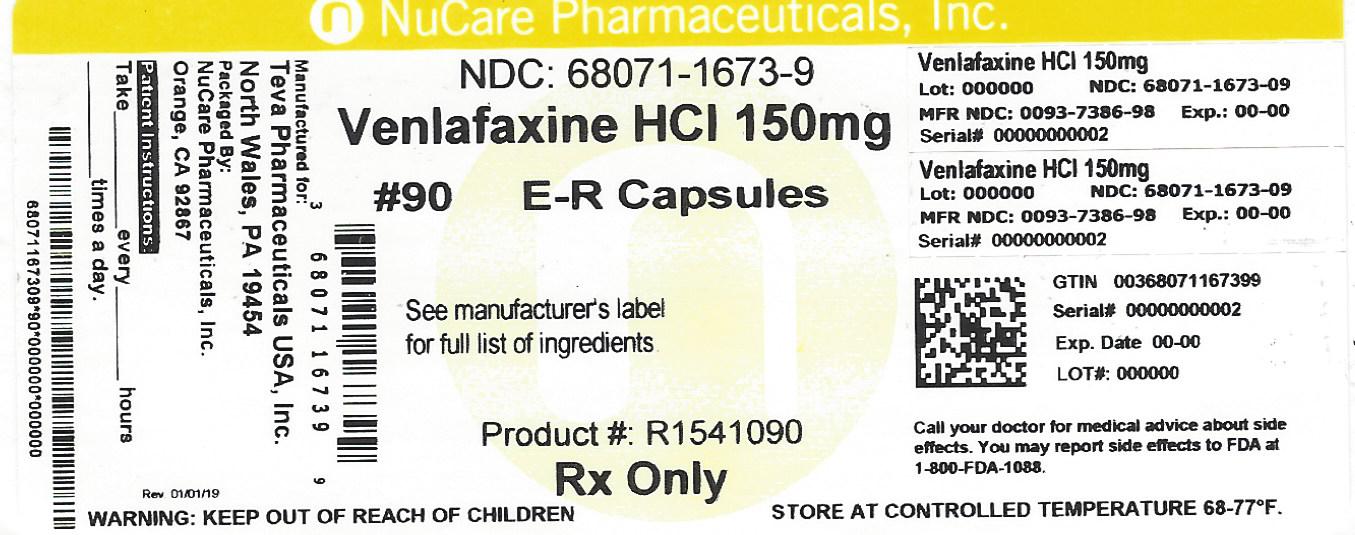
Venlafaxine Hydrochloride E-r Capsule, Extended Release while Breastfeeding
What is Venlafaxine Hydrochloride E-r Capsule, Extended Release used for?
Is Venlafaxine Hydrochloride E-r Capsule, Extended Release safe to use while breastfeeding? Can it interfere with growth and development of my kid?

8.3 Nursing Mothers Venlafaxine and ODV have been reported to be excreted in human milk. Because of the potential for serious adverse reactions in nursing infants from venlafaxine hydrochloride extended-release capsules, a decision should be made whether to discontinue nursing or to discontinue the drug, taking into account the importance of the drug to the mother.
Venlafaxine Hydrochloride E-r Capsule, Extended Release Breastfeeding Analsys
Venlafaxine while Breastfeeding
SafeCAS Number: 93413-69-5
It is a reuptake-inhibitor of Serotonin and Norepinephrine, and a precursor of Desvenlafaxine. Excreted into breast milk in amounts that may be clinically significant, which has been found in the plasma of breastfed infants from treated mothers. However, side-effects in those infants have not been shown. Various studies failed to show short or long-term side-effects among infants whose mothers were on Venlafaxine, both on physical or psychomotor development. It may induce galactorrhea. The poor extrauterine adaptation that may appear in neonates just after birth when the pregnant woman has been treated with selective reuptake-inhibitors of Serotonin like Venlafaxine or Mirtazapine, is seen to be mild if the baby is breastfed. In the case report of a mother who was taking this medication during pregnancy, her infant had shown amelioration of symptoms due to Abstinence Syndrome after having been breastfed. Women who use antidepressant medication during pregnancy are in need of more support for breastfeeding since they are at risk for early weaning.
Venlafaxine Hydrochloride E-r Capsule, Extended Release Breastfeeding Analsys - 2
Venlafaxine while Breastfeeding
CAS Number: 93413-69-5
Infants receive venlafaxine and its active metabolite in breastmilk, and the metabolite of the drug can be found in the plasma of most breastfed infants; however, concurrent side effects have rarely been reported. Breastfed infants, especially newborn or preterm infants, should be monitored for excessive sedation and adequate weight gain if this drug is used during lactation, possibly including measurement of serum levels of desvenlafaxine (O-desmethylvenlafaxine), to rule out toxicity if there is a concern. However, newborn infants of mothers who took the drug during pregnancy may experience poor neonatal adaptation syndrome as seen with other antidepressants such as SSRIs or SNRIs. Use of venlafaxine during breastfeeding has been proposed as a method of mitigating infant venlafaxine withdrawal symptoms,[1][2] but this has not been rigorously demonstrated.
What should I do if I am breastfeeding mother and I am already exposed to Venlafaxine Hydrochloride E-r Capsule, Extended Release?
Venlafaxine Hydrochloride E-r Capsule, Extended Release is safe in breastfeeding and should not create any health problem for your baby but in case you feel any health issue associated with Venlafaxine Hydrochloride E-r Capsule, Extended Release you should contact your doctor or health care provider. Be it pregnancy or lactation you shall keep your doctor informed.
My health care provider has asked me to use Venlafaxine Hydrochloride E-r Capsule, Extended Release, what to do?
Definitely, Venlafaxine Hydrochloride E-r Capsule, Extended Release is safe in lactation for baby. No wonder your doctor has recommended it.
If I am using Venlafaxine Hydrochloride E-r Capsule, Extended Release, will my baby need extra monitoring?
No extra baby monitoring required while mother is using Venlafaxine Hydrochloride E-r Capsule, Extended Release
Who can I talk to if I have questions about usage of Venlafaxine Hydrochloride E-r Capsule, Extended Release in breastfeeding?
US
National Womens Health and Breastfeeding Helpline: 800-994-9662 (TDD 888-220-5446) 9 a.m. and 6 p.m. ET, Monday through Friday
UK
National Breastfeeding Helpline: 0300-100-0212 9.30am to 9.30pm, daily
Association of Breastfeeding Mothers: 0300-330-5453
La Leche League: 0345-120-2918
The Breastfeeding Network supporter line in Bengali and Sylheti: 0300-456-2421
National Childbirth Trust (NCT): 0300-330-0700
Australia
National Breastfeeding Helpline: 1800-686-268 24 hours a day, 7 days a week
Canada
Telehealth Ontario for breastfeeding: 1-866-797-0000 24 hours a day, 7 days a week
